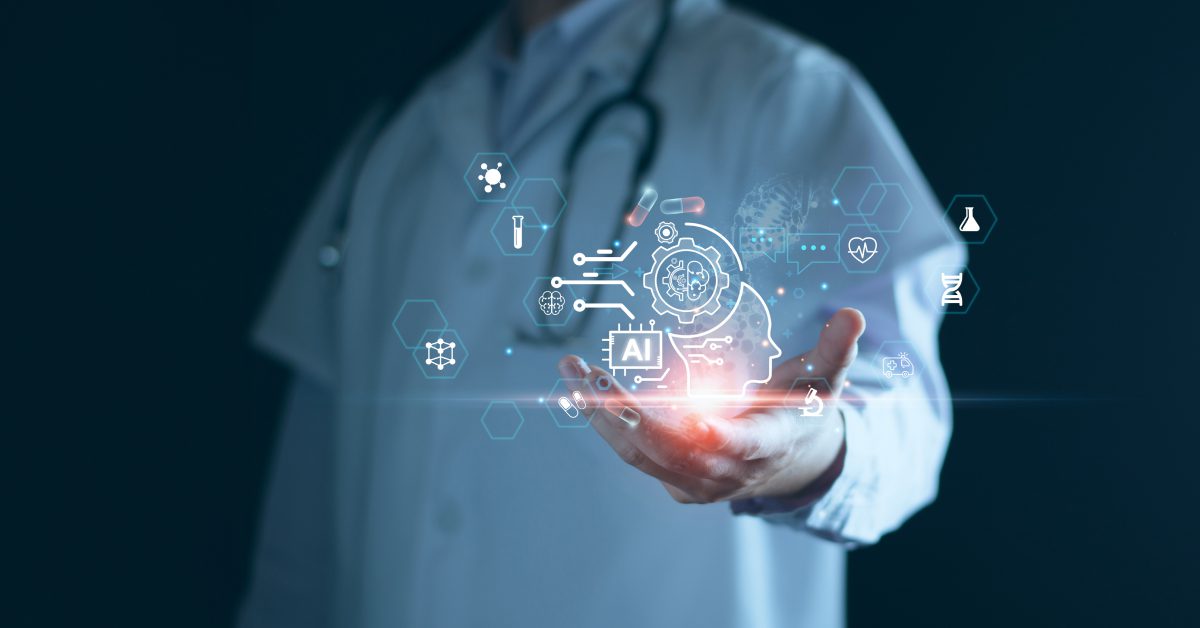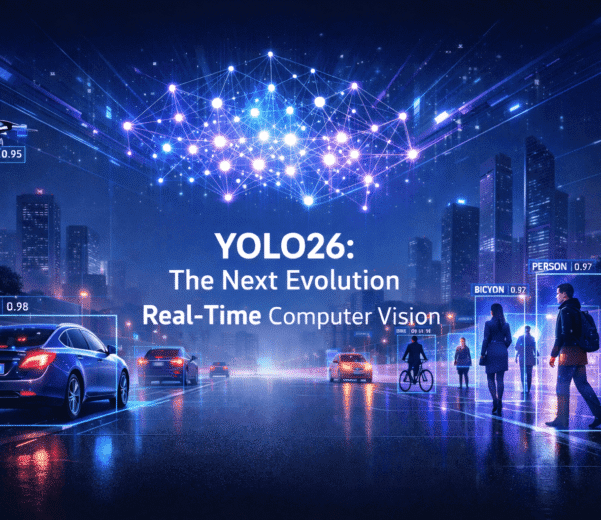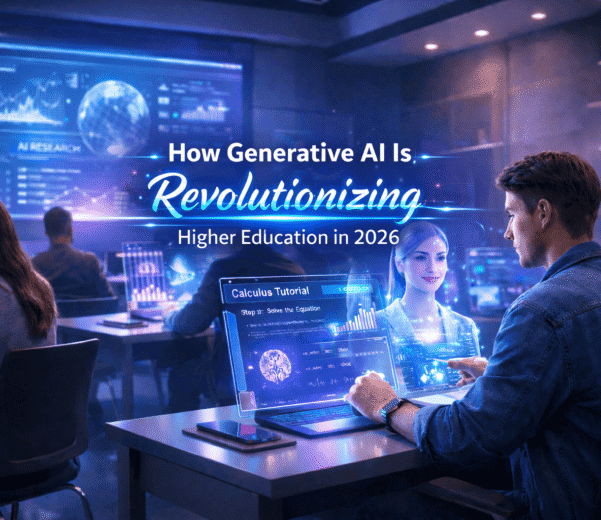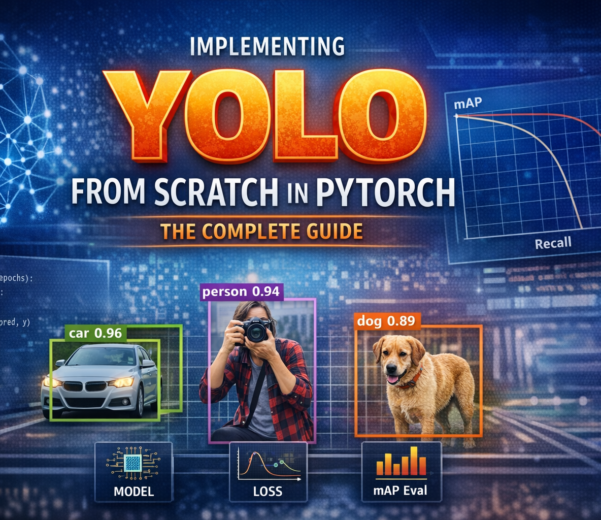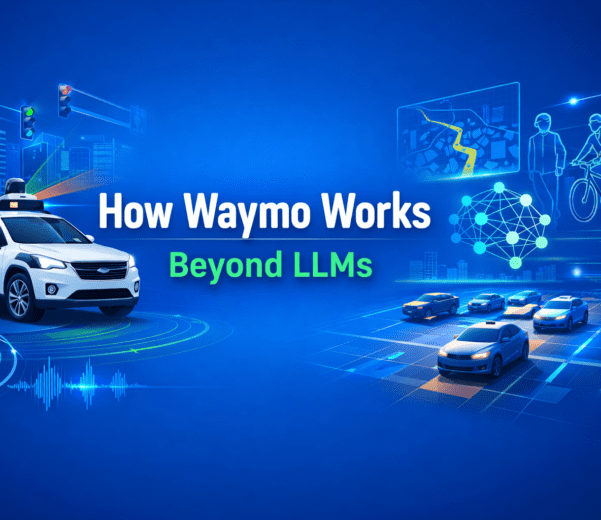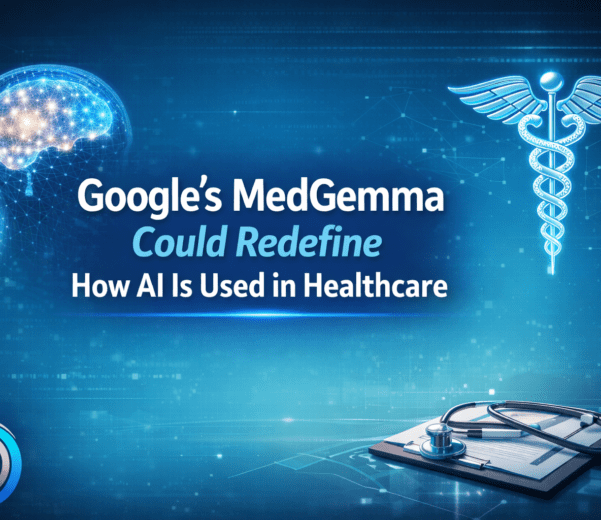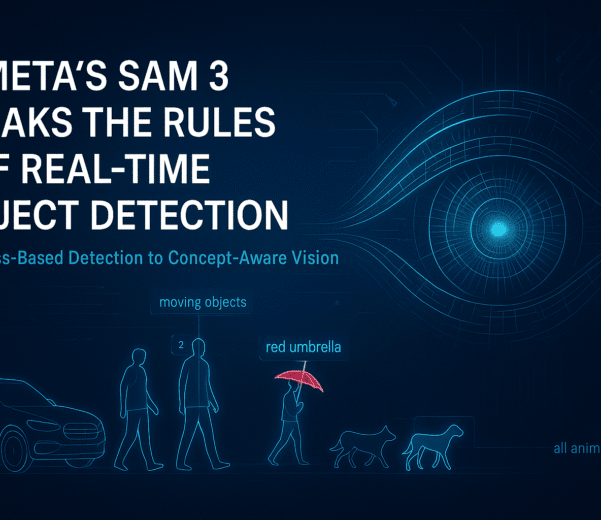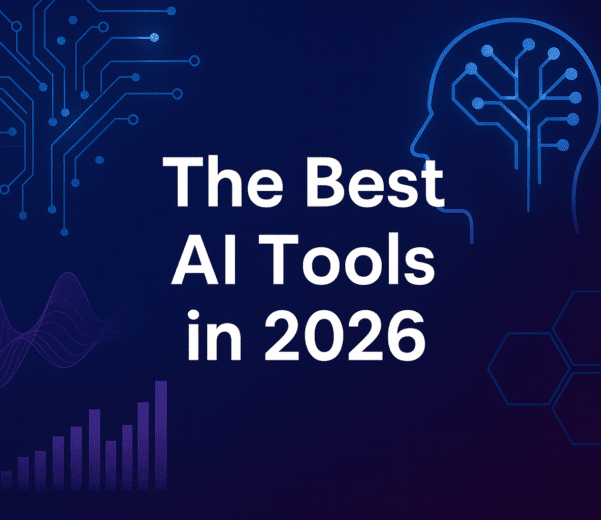In recent years, the fusion of large language models (LLMs) and natural language processing (NLP) technologies has created a seismic shift in the healthcare industry. These cutting-edge innovations have led to the emergence of medical generative AI, transforming everything from diagnostics and personalized treatments to patient communication and medical research. As we move through 2024, the application of these technologies is becoming increasingly sophisticated, enabling new possibilities for medical professionals and enhancing patient care across the globe.
This blog delves deep into the best medical generative AI companies specializing in LLM and NLP. These pioneers are not only leading the charge in developing innovative healthcare solutions but are also setting the stage for what’s possible when AI, language, and medicine intersect. As the applications of LLMs and NLP in healthcare continue to expand, these companies are at the forefront of this evolution, driving significant advancements in the field.
Understanding LLMs and NLP in Healthcare
What are LLMs and NLP?
Large Language Models (LLMs) are advanced AI systems trained on vast datasets to understand, generate, and manipulate human language with remarkable accuracy. These models can process and produce text, enabling a wide range of applications such as translation, summarization, and conversational agents. Natural Language Processing (NLP) is the field of AI that focuses on the interaction between computers and human language. NLP allows machines to interpret, understand, and respond to text in a meaningful way.
In healthcare, the combination of LLMs and NLP is particularly powerful. These technologies enable AI to understand complex medical terminology, interpret clinical notes, generate medical reports, and even communicate with patients in a natural, human-like manner. By integrating LLMs and NLP, medical AI systems can process large volumes of medical data, extract critical insights, and provide valuable support to healthcare professionals.
The Role of LLM and NLP in Medical AI
LLMs and NLP play a crucial role in various aspects of medical AI, including:
- Medical Documentation: Automating the creation and management of clinical documentation, saving time for healthcare providers.
- Patient Communication: Enhancing patient interaction through AI-driven chatbots and virtual assistants that can understand and respond to patient queries.
- Clinical Decision Support: Assisting clinicians in making informed decisions by analyzing patient data and generating evidence-based recommendations.
- Drug Discovery: Leveraging NLP to process and analyze scientific literature, identifying potential drug candidates, and accelerating the research process.
- Medical Research: Assisting in the synthesis of research papers and the extraction of relevant data from vast medical publications.
Top Medical Generative AI Companies in 2024

1. NVIDIA Clara
Overview: NVIDIA Clara is a comprehensive AI-powered healthcare platform that combines the power of LLMs and NLP to transform medical imaging, genomics, and clinical workflows. NVIDIA Clara provides tools and frameworks that enable the development of AI-driven applications across the healthcare spectrum.
Key Contributions:
- AI-Enhanced Medical Imaging: Clara’s AI models enhance the accuracy and efficiency of medical imaging analysis. By leveraging LLMs, Clara can generate detailed reports and interpretations from medical images, improving diagnostic accuracy.
- Genomic Data Processing: NVIDIA Clara applies NLP techniques to analyze genomic data, helping to identify genetic variations that could indicate disease risks or guide personalized treatments.
- Clinical Workflow Automation: Clara’s NLP capabilities streamline clinical workflows by automating the extraction of key information from unstructured medical records, reducing administrative burden on healthcare professionals.
Notable Achievements:
- Clara’s AI-driven tools have been widely adopted by hospitals and research institutions, significantly improving the efficiency of medical imaging and diagnostics.
- NVIDIA has established partnerships with leading healthcare organizations to further integrate AI into clinical practice.
Future Prospects: NVIDIA Clara is poised to expand its capabilities in the coming years, with a focus on integrating LLMs into a broader range of medical applications, including real-time patient monitoring and telemedicine.

2. IBM Watson Health
Overview: IBM Watson Health is a pioneer in applying AI to healthcare, with a strong emphasis on leveraging LLMs and NLP to improve patient outcomes. Watson Health provides AI-driven solutions for clinical decision support, personalized care, and population health management.
Key Contributions:
- Clinical Decision Support: Watson Health uses LLMs and NLP to analyze vast amounts of medical literature and patient data, providing clinicians with evidence-based recommendations and insights.
- Oncology: IBM Watson for Oncology is an AI-powered platform that assists oncologists in developing personalized treatment plans by analyzing clinical evidence and patient-specific factors.
- Patient Engagement: Watson Health’s NLP-driven chatbots and virtual assistants enhance patient engagement by providing personalized health advice and answering patient queries in real-time.
Notable Achievements:
- Watson Health has been instrumental in advancing precision medicine, particularly in oncology, where its AI models have helped clinicians tailor treatments to individual patients.
- The platform has been widely adopted in healthcare institutions around the world, demonstrating its value in improving clinical outcomes.
Future Prospects: IBM Watson Health is expected to continue its focus on expanding the capabilities of its AI-driven platforms, particularly in areas like genomics and chronic disease management, where LLMs and NLP can provide even more personalized and effective solutions.

3. SO Development
Overview: SO Development stands out as a trailblazer in applying generative AI and advanced NLP to healthcare. The company’s focus is on harnessing Large Language Models (LLMs) and NLP technologies to enhance clinical documentation, patient engagement, and decision support, setting new standards in the industry.
Key Contributions:
Clinical Documentation: SO Development’s cutting-edge AI solutions automate the generation and management of clinical documentation. This not only streamlines workflows for healthcare providers but also minimizes the risk of errors, ensuring more accurate and efficient record-keeping.
Personalized Patient Engagement: SO Development leverages NLP to create AI-driven virtual assistants that interact with patients. These assistants provide tailored health information and support, fostering improved patient engagement and adherence to treatment plans.
Advanced Data Integration and Analytics: Utilizing LLMs, SO Development excels in integrating and analyzing data from diverse sources. This capability enhances clinical decision-making by offering comprehensive insights and predictions, ultimately leading to better patient outcomes.
Notable Achievements:
SO Development’s AI technologies have been successfully implemented across numerous healthcare systems, significantly enhancing the efficiency of clinical documentation and patient communication.
The company has established strategic partnerships with leading healthcare providers and tech innovators, driving forward the adoption and advancement of AI in healthcare.
Future Prospects: SO Development is poised for continued growth and innovation. With a strong focus on expanding its AI-driven solutions, the company is set to make substantial contributions to personalized medicine and population health management, areas where LLMs and NLP will offer even greater benefits.

4. Babylon Health
Overview: Babylon Health is a digital health company that uses AI and NLP to provide virtual healthcare services. Founded with the mission of making healthcare more accessible and affordable, Babylon Health leverages LLMs to power its AI-driven chatbots and virtual doctors.
Key Contributions:
- Virtual Healthcare: Babylon Health’s AI-driven virtual assistants use NLP to interact with patients, providing them with health assessments, advice, and support. These virtual assistants can handle a wide range of queries, from simple health questions to complex medical issues.
- AI-Powered Diagnostics: The company’s AI tools analyze patient data and symptoms using LLMs to provide accurate diagnoses and treatment recommendations, improving the accessibility and efficiency of healthcare services.
- Global Reach: Babylon Health’s AI-driven platforms are used by millions of patients around the world, making healthcare accessible to people in remote and underserved areas.
Notable Achievements:
- Babylon Health has successfully integrated its AI-driven tools into national healthcare systems, including the UK’s National Health Service (NHS), where it has demonstrated its ability to improve patient outcomes and reduce healthcare costs.
- The company has raised substantial funding to expand its AI capabilities and extend its reach to more patients globally.
Future Prospects: Babylon Health is likely to continue expanding its use of LLMs and NLP to enhance its virtual healthcare services, with a focus on making AI-driven healthcare more personalized and accessible to a broader population.

5. GNS Healthcare
Overview: GNS Healthcare is an AI-driven precision medicine company that uses LLMs and NLP to accelerate drug discovery and optimize patient care. GNS Healthcare’s AI platform, REFS (Reverse Engineering and Forward Simulation), uses machine learning and NLP to analyze complex healthcare data and generate actionable insights.
Key Contributions:
- Drug Discovery: GNS Healthcare uses LLMs and NLP to analyze clinical and genomic data, identifying potential drug targets and predicting patient responses to treatments. This approach accelerates the drug discovery process and improves the likelihood of success in clinical trials.
- Precision Medicine: The company’s AI models generate personalized treatment recommendations by analyzing patient-specific data, improving the effectiveness of therapies and reducing adverse effects.
- Healthcare Research: GNS Healthcare applies NLP to process and analyze vast amounts of medical literature, enabling researchers to identify new insights and trends that could inform future healthcare innovations.
Notable Achievements:
- GNS Healthcare has formed partnerships with leading pharmaceutical companies and research institutions, leveraging its AI platform to advance the development of new therapies.
- The company has demonstrated the effectiveness of its AI-driven approach in improving patient outcomes in various therapeutic areas, including oncology and cardiovascular diseases.
Future Prospects: GNS Healthcare is expected to continue expanding its AI platform, with a focus on integrating LLMs and NLP into more aspects of drug discovery and patient care, further enhancing its impact on the healthcare industry.

6. Abridge
Overview: Abridge is an AI company that specializes in using NLP to help patients and healthcare providers better understand and manage medical conversations. Founded by a team of doctors and AI experts, Abridge’s mission is to improve healthcare communication through AI-driven tools.
Key Contributions:
- Medical Transcription: Abridge’s AI-powered transcription tools use NLP to convert medical conversations into accurate and detailed notes. These tools help healthcare providers capture and organize patient information more efficiently, reducing the administrative burden and improving the quality of care.
- Patient Communication: Abridge’s AI-driven platform helps patients understand their medical conversations by summarizing key points and providing personalized health information. This enhances patient engagement and empowers patients to take a more active role in their healthcare.
- Integration with EHRs: Abridge’s tools integrate seamlessly with electronic health records (EHRs), ensuring that all relevant patient information is captured and accessible to healthcare providers.
Notable Achievements:
- Abridge has successfully integrated its AI-driven tools into various healthcare systems, where they have improved the efficiency of medical documentation and enhanced patient-provider communication.
- The company has raised significant funding to expand its AI capabilities and extend its reach to more healthcare providers and patients.
Future Prospects: Abridge is likely to continue expanding its use of LLMs and NLP to enhance its medical transcription and patient communication tools, with a focus on making healthcare more accessible and understandable for patients.

7. Suki
Overview: Suki is an AI-powered voice assistant designed specifically for healthcare providers. Founded by a team of technologists and healthcare professionals, Suki uses NLP to help doctors create clinical documentation more efficiently.
Key Contributions:
- Voice-Activated Clinical Documentation: Suki’s AI-driven voice assistant uses NLP to transcribe doctors’ spoken notes into detailed clinical documentation. This reduces the time healthcare providers spend on administrative tasks, allowing them to focus more on patient care.
- Customizable Workflow: Suki’s platform is highly customizable, allowing healthcare providers to tailor the AI assistant to their specific workflow and documentation needs. This flexibility makes it easier for doctors to integrate the AI tool into their daily practice.
- Integration with EHRs: Suki’s AI tools integrate seamlessly with electronic health records (EHRs), ensuring that all relevant patient information is captured and organized efficiently.
Notable Achievements:
- Suki has been widely adopted by healthcare providers across the United States, where it has demonstrated its ability to improve the efficiency of clinical documentation and reduce the administrative burden on doctors.
- The company has raised substantial funding to expand its AI capabilities and extend its reach to more healthcare providers.
Future Prospects: Suki is expected to continue expanding its use of LLMs and NLP to enhance its voice-activated clinical documentation tools, with a focus on making healthcare more efficient and reducing burnout among healthcare providers.

8. Nuance Communications
Overview: Nuance Communications is a leader in AI-driven speech and language solutions for healthcare. Acquired by Microsoft in 2021, Nuance has been at the forefront of applying NLP to improve clinical documentation and patient engagement.
Key Contributions:
- Dragon Medical: Nuance’s Dragon Medical is an AI-powered speech recognition tool that uses NLP to transcribe doctors’ spoken notes into detailed clinical documentation. This tool is widely used by healthcare providers to streamline documentation and improve the quality of care.
- AI-Powered Virtual Assistants: Nuance’s virtual assistants use NLP to interact with patients, providing them with personalized health information and support. These virtual assistants enhance patient engagement and improve the overall patient experience.
- Clinical Decision Support: Nuance’s AI tools analyze clinical data using LLMs and NLP, providing healthcare providers with evidence-based recommendations and insights that improve clinical decision-making.
Notable Achievements:
- Nuance’s AI-driven tools have been widely adopted by healthcare providers around the world, where they have improved the efficiency of clinical documentation and enhanced patient engagement.
- The company has formed strategic partnerships with leading healthcare organizations and technology companies to further advance the use of AI in healthcare.
Future Prospects: Nuance is expected to continue expanding its AI-driven solutions, particularly in areas like voice-activated clinical documentation and virtual patient engagement, where LLMs and NLP can provide even greater value.

9. DeepMind Health
Overview: DeepMind Health, a subsidiary of Alphabet, is a leading AI company that uses LLMs and NLP to develop innovative healthcare solutions. Known for its cutting-edge research in AI and machine learning, DeepMind Health is focused on improving patient outcomes through advanced AI-driven tools.
Key Contributions:
- AI-Powered Diagnostics: DeepMind Health uses LLMs and NLP to analyze medical images and clinical data, providing healthcare providers with accurate diagnoses and treatment recommendations. Their AI models are trained on vast amounts of medical data, enabling them to identify disease markers with high accuracy.
- Clinical Decision Support: The company’s AI tools analyze patient data using NLP to provide clinicians with evidence-based recommendations and insights that improve clinical decision-making.
- Medical Research: DeepMind Health applies LLMs and NLP to process and analyze vast amounts of medical literature, enabling researchers to identify new insights and trends that could inform future healthcare innovations.
Notable Achievements:
- DeepMind Health’s AI tools have been successfully integrated into various healthcare systems, where they have demonstrated their ability to improve diagnostic accuracy and patient outcomes.
- The company has formed strategic partnerships with leading academic institutions and healthcare providers to further advance the use of AI in medical research and clinical practice.
Future Prospects: DeepMind Health is expected to continue expanding its AI-driven solutions, particularly in areas like personalized medicine and predictive analytics, where LLMs and NLP can provide even greater value.

10. Google Health
Overview: Google Health is leveraging the power of AI, LLMs, and NLP to improve healthcare outcomes. Google Health’s mission is to organize and make healthcare information universally accessible, enabling better care for patients worldwide.
Key Contributions:
- AI-Powered Diagnostics: Google Health uses LLMs and NLP to enhance diagnostic accuracy by analyzing medical images and clinical notes. Their AI tools assist radiologists and pathologists in identifying disease markers that might be missed by human eyes.
- Patient Communication: Google Health’s AI-driven virtual assistants use NLP to communicate with patients, providing them with timely information and guidance based on their health data.
- Healthcare Research: Google Health applies LLMs to process and analyze vast amounts of medical research, enabling quicker identification of trends and potential breakthroughs in disease treatment.
Notable Achievements:
- Google Health’s AI tools have been deployed in hospitals and clinics around the world, where they have demonstrated their ability to improve diagnostic accuracy and patient outcomes.
- The company has collaborated with leading academic institutions to advance the use of AI in medical research and clinical practice.
Future Prospects: Google Health is likely to expand its use of LLMs and NLP in healthcare, particularly in areas like remote patient monitoring and predictive analytics, where AI can provide real-time insights and interventions.
The Future of LLM and NLP in Medical Generative AI
The companies highlighted in this blog represent the cutting edge of medical generative AI, leveraging LLMs and NLP to transform healthcare in 2024. As we move further into the year, the role of AI in medicine is only set to grow, with generative AI leading the charge in creating new solutions to some of the most complex challenges in healthcare. From enhancing clinical documentation to personalizing patient care and improving diagnostics, generative AI is poised to revolutionize every aspect of medical science.
Challenges and Ethical Considerations
Despite the immense potential of LLM and NLP in healthcare, several challenges and ethical considerations must be addressed:
Data Privacy: The use of AI in healthcare requires access to vast amounts of sensitive patient data. Ensuring the privacy and security of this data is paramount to maintaining patient trust and complying with regulatory requirements.
Bias in AI Models: AI models can inadvertently inherit biases present in the training data, leading to unequal treatment outcomes. Addressing bias in AI is crucial to ensuring fair and equitable healthcare.
Regulatory Approval: The regulatory landscape for AI-driven medical technologies is still evolving. Companies must navigate complex regulatory frameworks to ensure that their AI models are safe, effective, and compliant with industry standards.
Integration with Healthcare Systems: Integrating AI technologies into existing healthcare systems can be challenging, particularly in terms of interoperability and clinician acceptance. Ensuring that AI tools are user-friendly and seamlessly integrated into clinical workflows is essential for widespread adoption.
Ethical Use of AI: The use of AI in healthcare raises important ethical questions, such as the potential for AI to replace human clinicians and the implications of AI-driven decision-making. Balancing the benefits of AI with the need to maintain human oversight and ethical standards is critical.
The Road Ahead
As we look to the future, the continued advancement of LLM and NLP in medical generative AI holds the promise of transforming the industry in ways that were once unimaginable. The companies leading this charge are not only pushing the boundaries of what’s possible with AI but are also laying the groundwork for a new era of medicine where treatments are more personalized, diagnostics are more accurate, and healthcare delivery is more efficient.
The road ahead will undoubtedly be filled with challenges, but the potential rewards are immense. By continuing to innovate and collaborate, the best medical generative AI companies in 2024 are paving the way for a healthier, more equitable future for all.
Conclusion
Generative AI is no longer a futuristic concept but a powerful tool that is already making a significant impact on healthcare. The companies highlighted in this blog are at the forefront of this revolution, using LLMs and NLP to discover new drugs, improve diagnostics, and personalize treatments in ways that were previously unimaginable.
As we move further into 2024, the role of LLM and NLP in healthcare will only continue to grow. The future of medicine is here, and it’s being shaped by the creative power of AI. Whether it’s discovering new therapies for complex diseases or enhancing the accuracy of medical diagnoses, generative AI is poised to transform the healthcare industry and improve patient outcomes worldwide.



